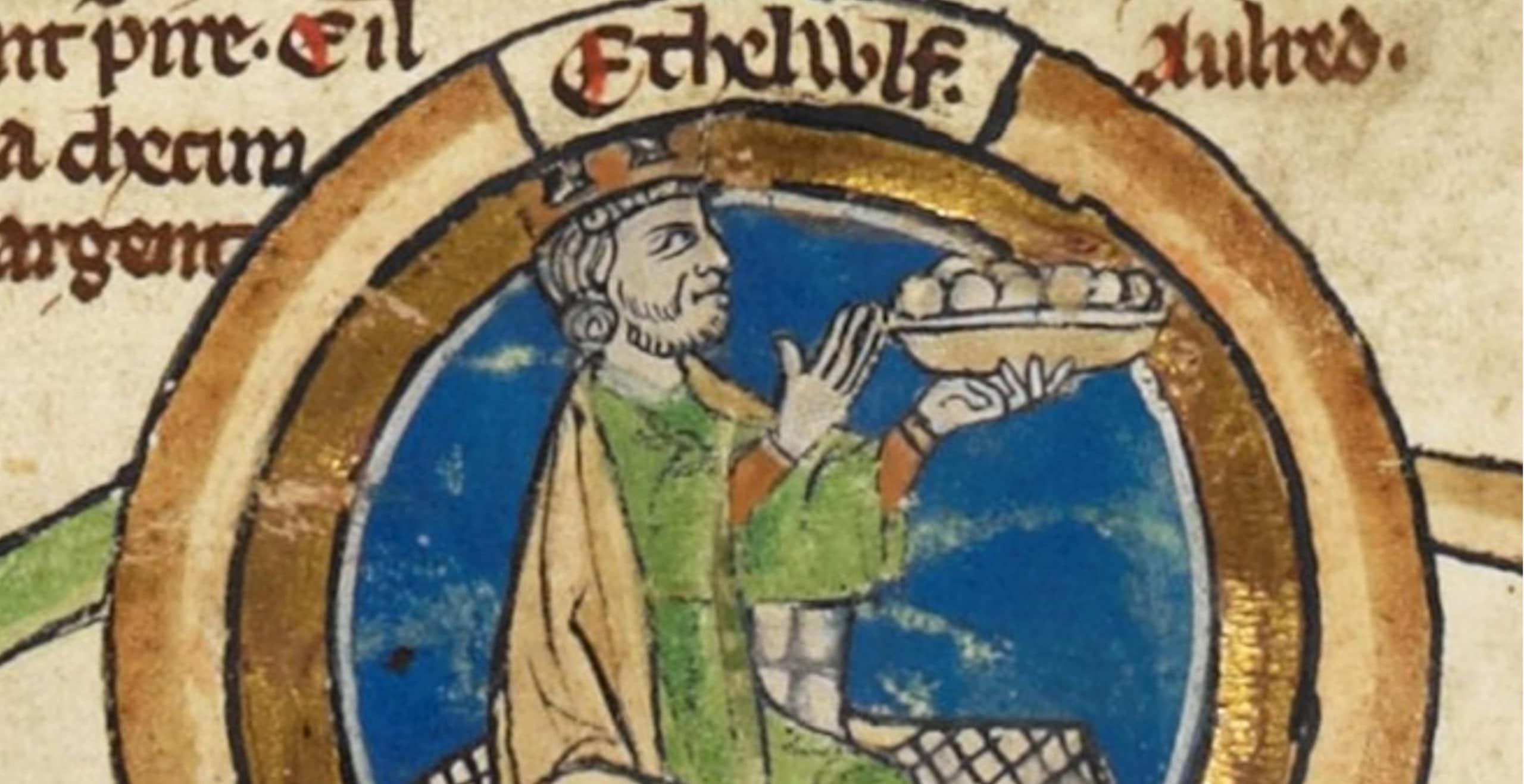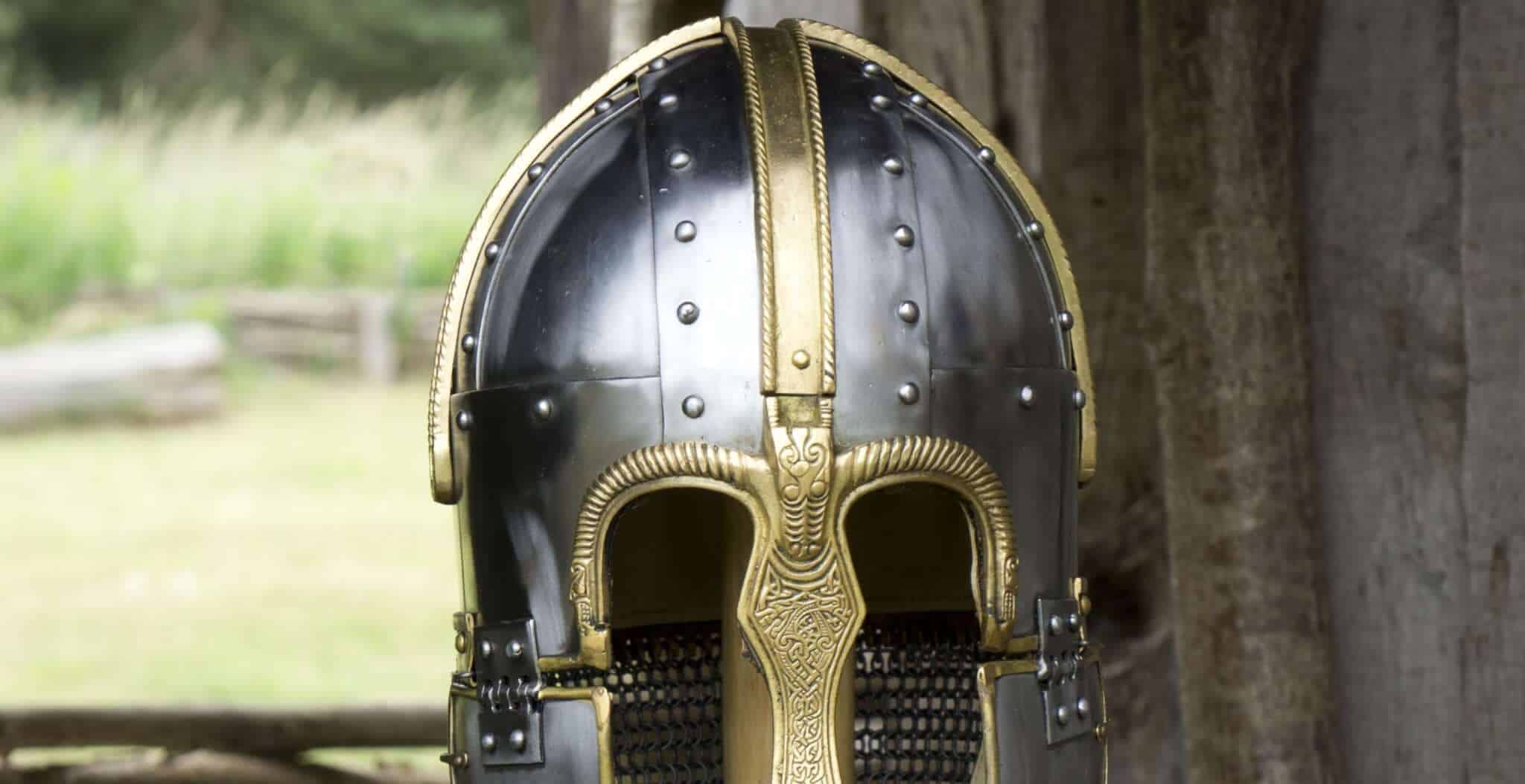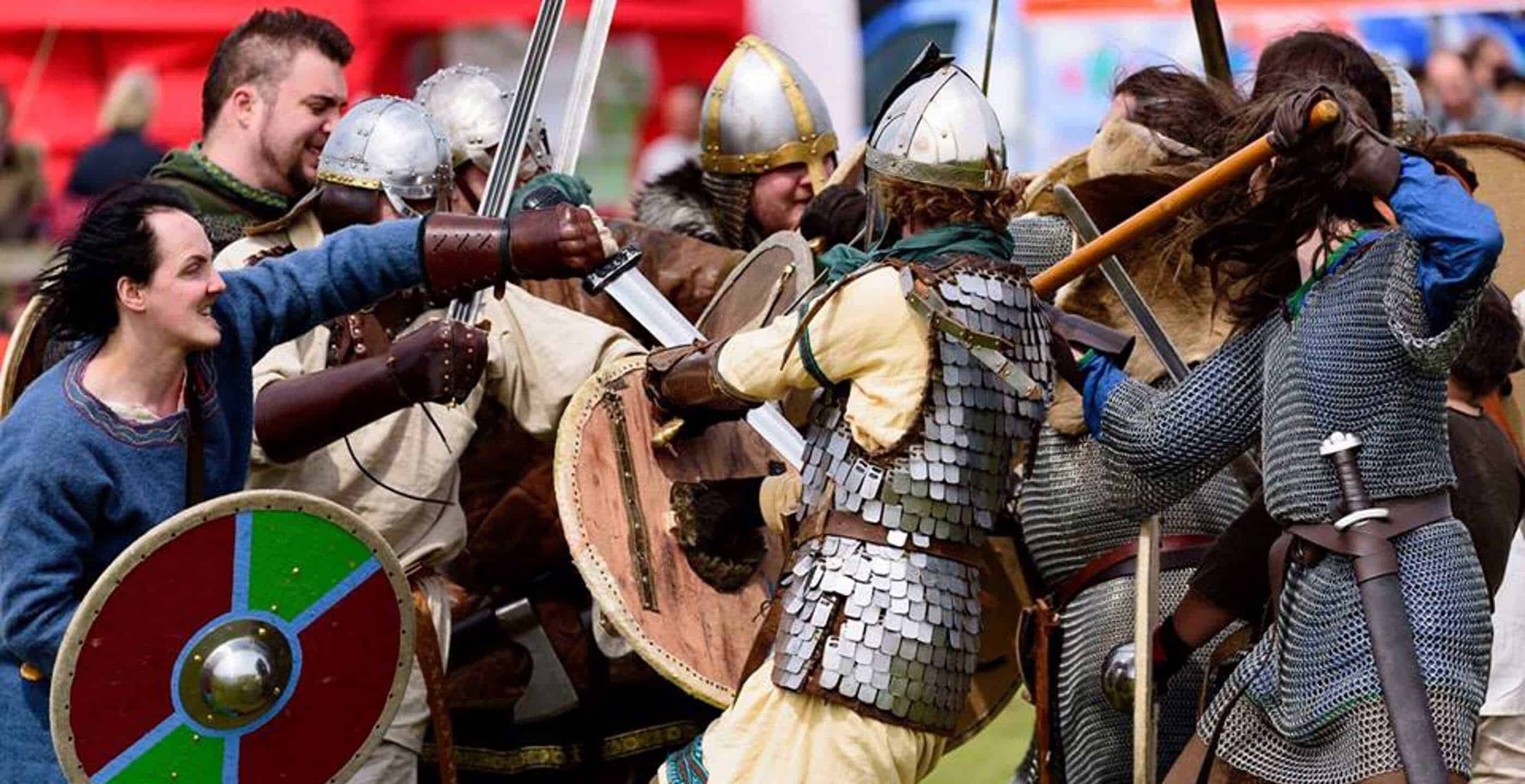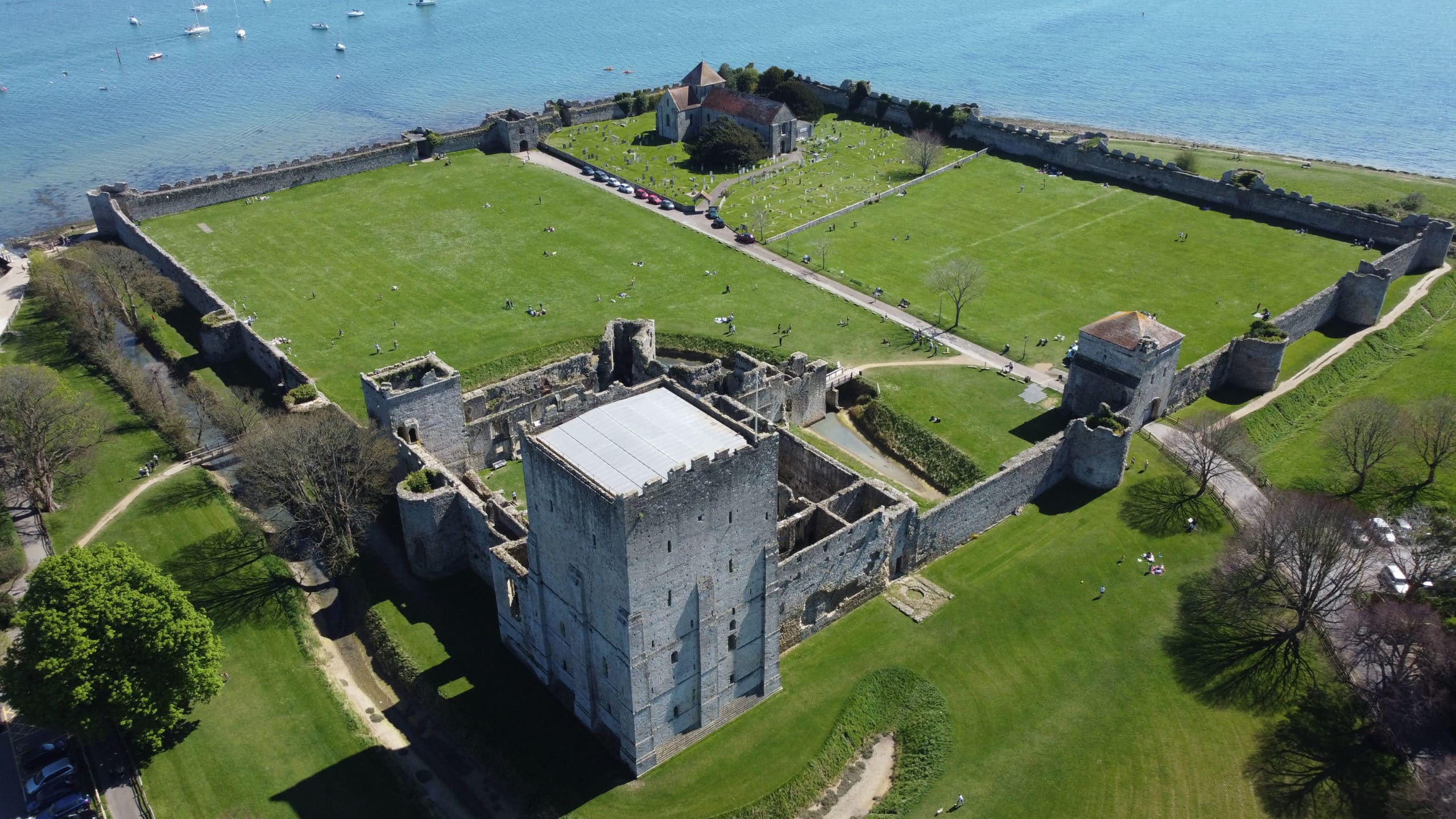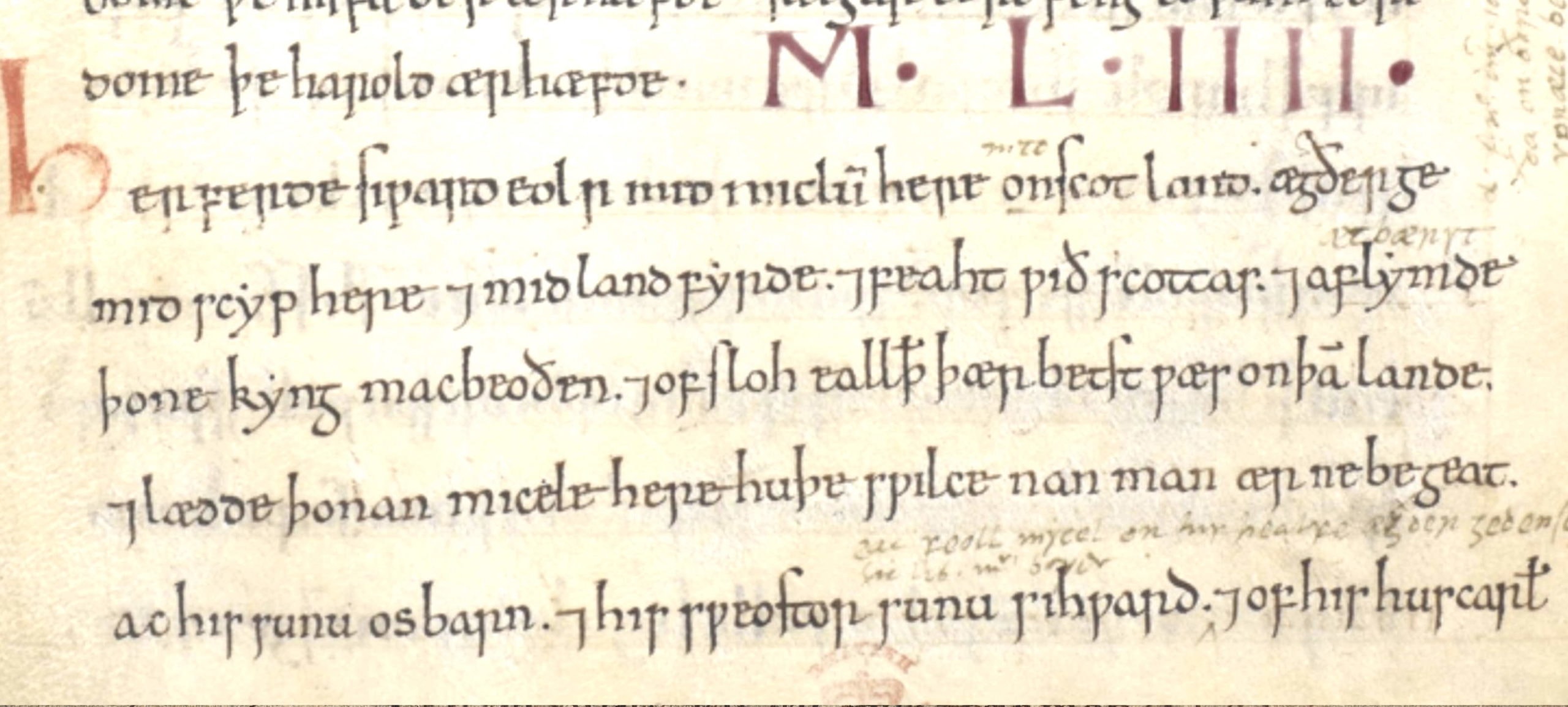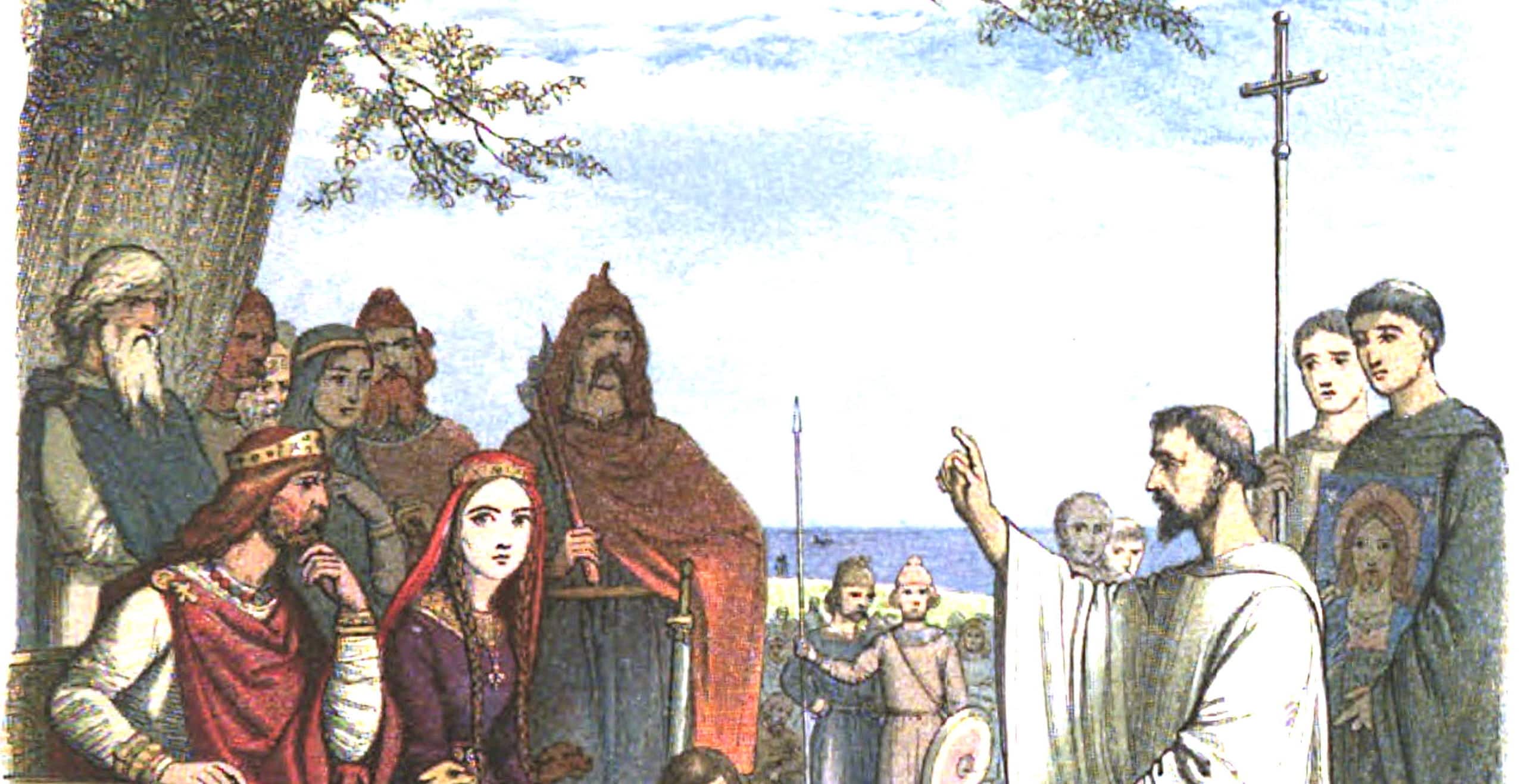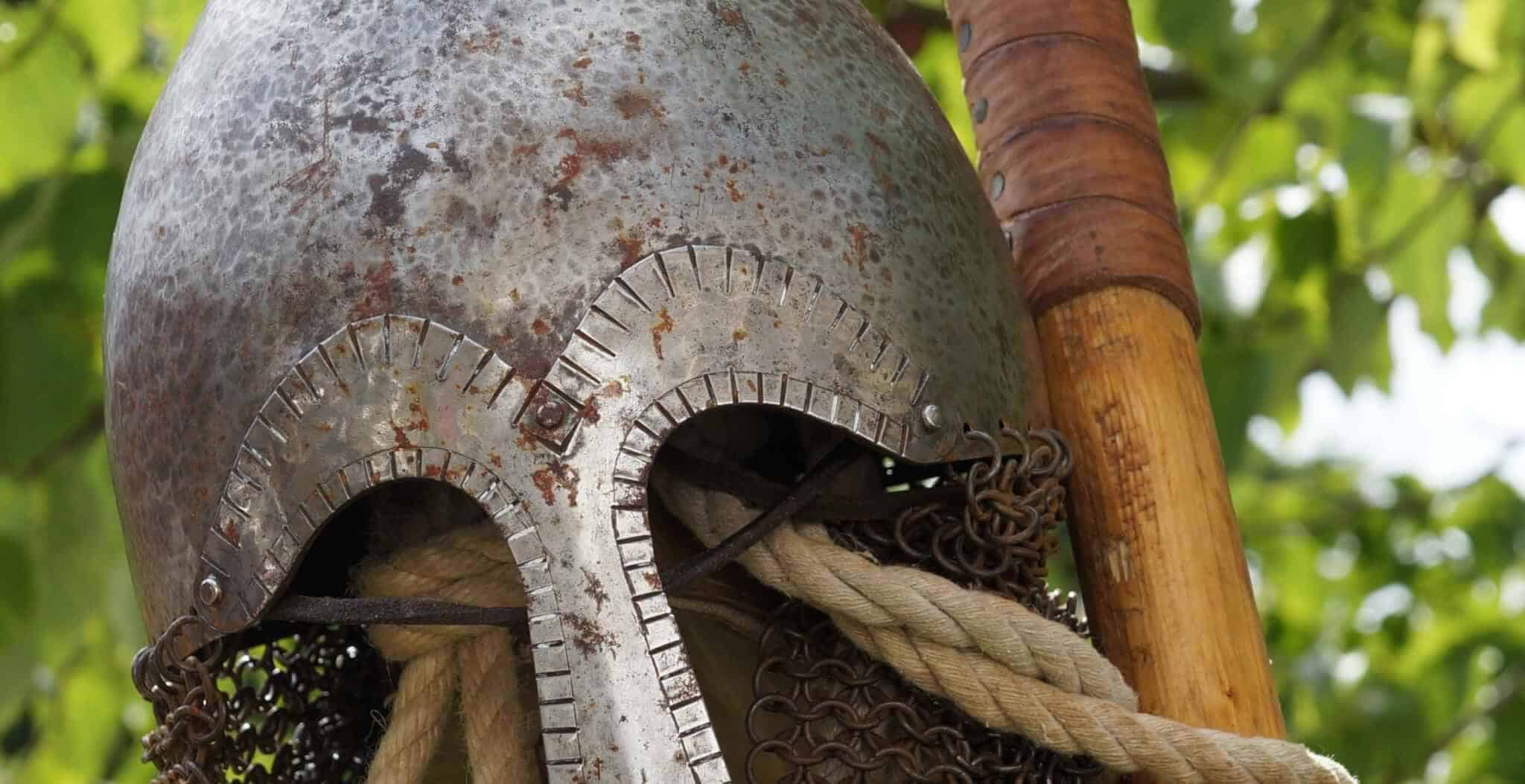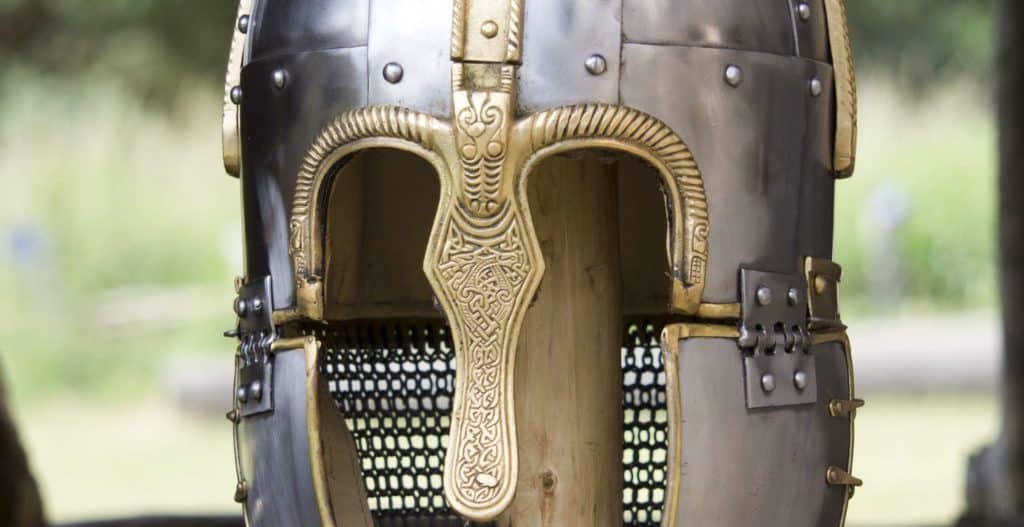In 839 Aethelwulf became King of Wessex and inherited the throne from his father Egbert. Egbert passed on not only a title but the responsibility of numerous territories spanning kingdoms across England and accompanying it, the constant threat of it being taken away.
Aethelwulf inherited the throne at a time when his father had consolidated a great deal of power from neighbouring kingdoms and expanded his territory to include the southeast as well as briefly the kingdom of Mercia.
King Egbert had sent Aethelwulf with an army to Kent in order to expel the Mercian powerbase and install himself as the new sub-king of the region.
By the latter years of his father’s reign, Aethelwulf saw his father grapple with the growing presence of the Vikings who had joined forces with the rebel Cornish against Egbert at the Battle of Hingston Down in 838. Fortunately for Egbert and his men, they were able to suppress this threat, however as his reign drew to a close, Aethelwulf would look set to inherit a complex role of maintaining a balance of power as well as warding off potential threats from neighbouring kingdoms and overseas interest.
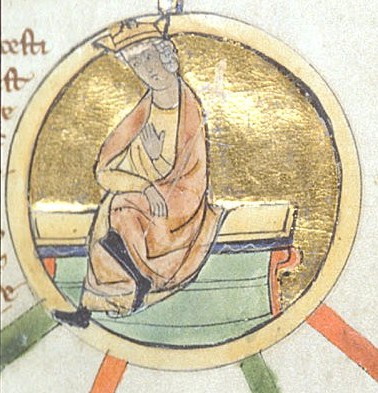
In 839, Aethelwulf was crowned King of Wessex. He succeeded his father who had made great strides in ensuring a vast and stable kingdom would be passed on to his descendants. Moreover, with such an inheritance came a substantial royal income but also responsibility to maintain the power which had been secured by his father and in turn pass it on to subsequent generations.
This he was able to achieve in 851 at the Battle of Aclea when Aethelwulf and his men were able to inflict great losses on the invaders, thus securing West Saxon hegemony.
Whilst the exact details of the battle remain fragmented, it was recorded in the Anglo-Saxon Chronicle that the Danish Vikings travelled up the Thames with around 350 ships, first tackling the King of Mercia and then making their way to Surrey in order to fight King Aethelwulf and his son Aethelbald at Aclea.
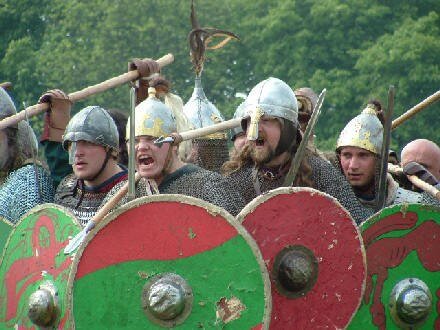
Fortunately for the king, his decisive victory would ensure his position and that of his family against further threats from the Vikings.
This dominance was further enhanced in a battle off the coast of Sandwich led by his other son, Aethelstan who sadly died not long afterwards.
Whilst combating the consistent threat posed by the Vikings, the political climate for alliances and peace talks between rival kingdoms looked more conducive than ever, particularly when so much was at stake.
United against a common enemy, the recently crowned King of Mercia Burgred approached Aethelwulf with a proposition of an alliance.
Considering the historic rivalry between Wessex and Mercia, this was an historic moment.
The accord brokered by the two kings was cemented by the marriage of King Burgred of Mercia to Aethelwulf’s daughter, Princess Aethelswith. Moreover, as part of the agreement the lands of Berkshire, which had been a point of contention for both kingdoms, passed into Wessex control.
With the wedding celebrated in Chippenham, Wessex, Burgred proceeded to call on Aethelwulf for assistance in suppressing the Welsh who were rebelling against his rule.
The combined forces of Burgred and Aethelwulf proved enough to overwhelm the rebels.
Secure in this new alliance and with invasions from the Danes temporarily dealt with, Aethelwulf took the time to go on a pilgrimage to Rome.
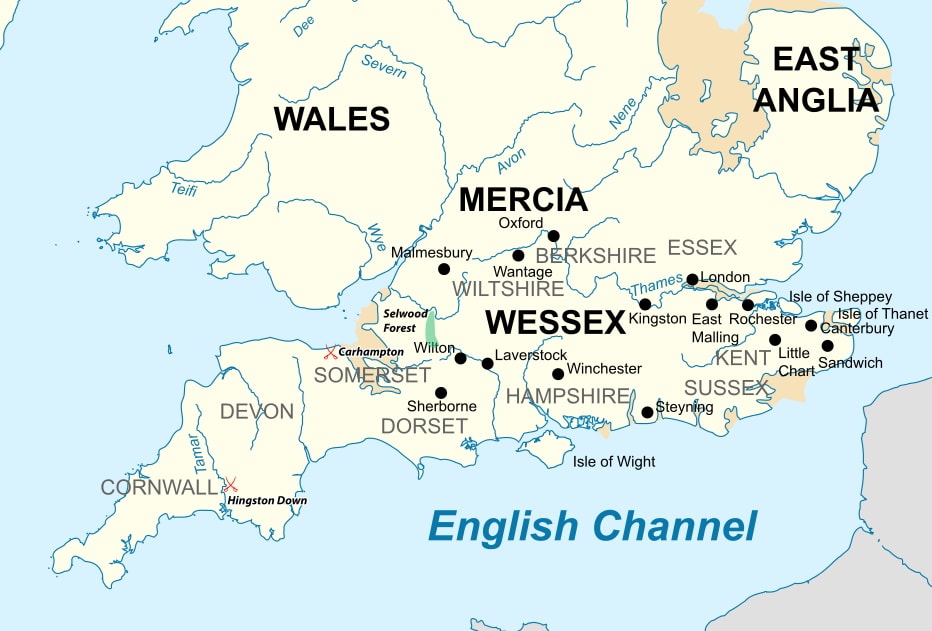
In 855, King Aethelwulf left Wessex in the capable hands of his eldest son Aethelbald whilst he was abroad. Meanwhile, his other son, Aethelbert was given the responsibility of the south eastern territory of their kingdom.
Aethelwulf was accompanied by his two younger sons, Aethelred and Alfred who were still young children. Accompanied by a large retinue to support him on this trip, Aethelwulf would stay in Rome for a year and give significant and valuable gifts to the Diocese of Rome including goblets, swords and a gold crown weighing almost 2kg.
With the journey illustrating not only Aethelwulf’s religious conviction and piety but also his prestige as a successful English royal, his trip back to England would make one final and significant pit stop.
He made a noteworthy visit to the court of King Charles the Bald in which the two men had much to discuss. In time, they would come to an agreement of creating a formal alliance which would be ratified by the subsequent marriage of Aethelwulf to Charles’s daughter Judith, who was only fourteen at the time. Whilst both kings had overlapping interests and mutual experiences of Viking threats, his newly crowned queen would validate their shared opinions on a variety of issues as both kings had power to consolidate in the face of future threats.
Aethelwulf however needed to look closer to home in order to find danger likely to usurp his power.
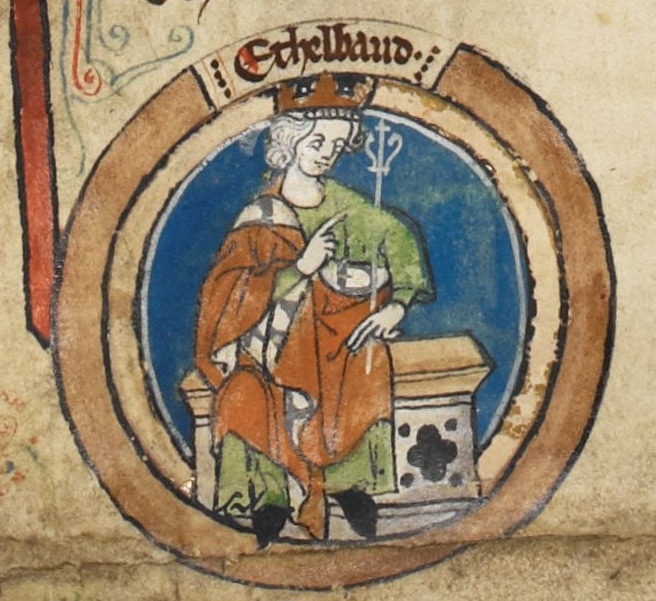
In the time that the king had spent away on his pilgrimage, his son Aethelbald had claimed the throne of Wessex as his own.
Such a decision to rival his father inevitably came to a head when Aethelwulf returned to England to discover infighting within his own kingdom.
Back at home, Aethelbald was less than pleased to see his father return to reclaim his throne and to make matters worse, do so accompanied by his very young wife who could bear him more children and rivals.
As it happened, this was not the case and by this point Aethelbald had won the favour of some important people in Wessex such as the Bishop Aelfstan of Sherbourne and Ealdorman Enwulf of Somerset. He would therefore continue his efforts to hold onto the crown, bolstered by the support he received and unwilling to step aside for his father.
Now forced to accept this new power dynamic within his kingdom and very much feeling his age, Aethelwulf stood back and agreed for Aethelbald to retain control whilst Aethelwulf would rule over the south eastern region.
Not long afterwards he passed away on 13th January 858, leaving behind a substantial dynastic legacy which would continue to hold onto power long after he was gone.
King Aethelwulf may not have had the most memorable reign as king, however his sense of duty and knowledge of kingship allowed him to retain the crown for future generations and build on the legacy which had been created by his father, Egbert.
The Kingdom of Wessex was here to stay and so too was a powerful royal dynasty which continued to influence the politics, society and culture of England.
Jessica Brain is a freelance writer specialising in history. Based in Kent and a lover of all things historical.
Published: 23rd February 2022.
